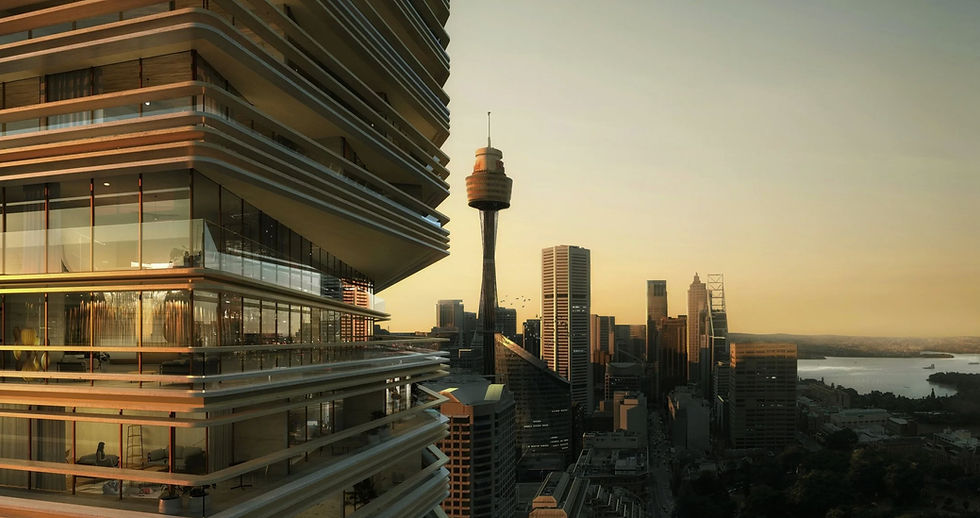Top Architectural 3D Rendering Companies in 2025
- Pedro J. López

- Sep 19, 2025
- 4 min read

Why Choosing the Right 3D Rendering Partner Matters
I’ve been there: a brilliant design loses power if the visuals don’t carry the same intent. When we outsource rendering, the real risk isn’t lack of talent—it’s not knowing what objective criteria to apply.
Choose poorly and you’ll feel it in delays, stakeholder pushback, and images that don’t sell the concept.

The Role of Visualization in Communicating Architectural Value
Great imagery reduces client uncertainty, accelerates decisions, and aligns expectations.
The right shot can sway a jury, clinch a competition, or unlock pre-sales in property marketing.
Common Mistakes When Outsourcing Rendering
Judging purely by price per image instead of value.
Falling for a decontextualized portfolio (no WIPs, no process).
Skipping a brief + reference deck before production (see The Full Process Behind an Exterior Rendering)
Ignoring the story (yes, visualization is storytelling—see our article: Storytelling in 3D Visualization).

How to Choose the Best Architectural Rendering Studio
Below is the checklist I wish I had when I first outsourced our architectural renderings:
Criteria to Evaluate Quality Beyond the Portfolio
Consistency: Does quality hold across diverse typologies and lighting scenarios?
Atmosphere & lifestyle: Does the scene feel inhabited and believable?
Materiality: Clean PBR use, edge wear, micro-detail, correct reflections/roughness.
Camera & composition: Clean leading lines, depth by planes, coherent focal story.
Process transparency: Ask for WIPs and a breakdown (blockout → lighting → materials → post).
Revisions: Number, scope per milestone, and realistic turnarounds.

Communication and Project Understanding
Look for “smart questions” about user, program, climate, time of day, and material intent.
Strong moodboards and clear visual references from the start help avoid extra revision rounds. You can count on having one dedicated project manager as your main contact, along with agreed response times.
Budget vs. Value: Finding the Balance
The hidden cost of a weak render is bigger than a line item: missed deadlines, re-work, lost momentum in campaigns.

Top Architectural 3D Rendering Companies in 2025 — Our Ranking
1) Render4tomorrow Studio
Why they fit: narrative-first approach, believable atmospheres, and a predictable, milestone-driven process (brief → mood → WIPs → QA). When I’ve had tight deadlines, objective criteria + process clarity were non-negotiable—exactly what this setup offers.
Best for: competitions, brand-coherent image series, property marketing where story and lifestyle matter.
If you want us to help create the renders for your project, get in touch—Render4tomorrow will review your brief and propose the best approach.

2) DBOX
Known for strong art direction and integrated campaigns. Ideal when renders are part of a broader branding or launch strategy, and highly experienced in handling large-scale projects.
3) Brick Visual
Strong cinematic composition and mood. Great for iconic hero shots where form and lighting take center stage.
4) Binyan Studios
Excellent cross-media consistency (stills, animation, interactives). Useful for full marketing packages.
5) The Boundary
High-end photorealism with meticulous material and natural light handling.
6) MIR
Distinct poetic, evocative style—perfect for competitions and editorial storytelling.
7) Luxigon
Vibrant art direction and color; a fit when you want graphic impact and differentiation.
8) Kilograph
Bridges visualization and brand narratives—solid choice for campaign-oriented deliverables.
9) Hayes Davidson
Veteran shop balancing architectural rigor with client-friendly production.
10) K2 Visual
Reliable quality at scale—good for larger series with firm timelines.

Emerging Trends in Architectural Visualization (2025)
AI and Automation in the Pipeline
AI speeds repetitive tasks (asset cleanup, denoise, upscaling) so artists spend more time on art direction. Will AI replace designers? It’s more of a multiplier—context here: Will AI replace architects?.

Hyper-Realistic vs. Conceptual, and When to Use Each
For property marketing, combine a photoreal “hero” with conceptual support images that explain intent. This dual approach convinces both committees and the public.
VR/AR Integration for Validation and Sales
Walkthroughs and AR experiences clarify scale and detail and can boost pre-sales. They also reduce friction in internal design reviews.
Conclusion: A 4-Step Playbook to Get It Right
Define your story (user, time of day, climate, materials).
Build a tight brief with 2–3 reference benchmarks.
Request a camera + light test and set revision milestones.
Judge beyond price: process, consistency, communication, and how well they translate the values of your design.
If you want to ensure your images match the level of your architecture, Render4tomorrow can help—send us your brief, let's visualize your project.
Frequently Asked Questions
What makes a 3D rendering company “the best” in 2025?
Consistency across projects, transparent process, sharp communication, and the ability to tell the project’s story, not just depict geometry.
How do I brief a rendering studio effectively?
Define audience, mood, key materials, camera priorities, and 2–3 visual benchmarks; list deliverables per milestone.
How many revisions are reasonable?
Set phases (blockout, lighting, materials, post) with 1–2 focused rounds per phase. Clarity beats unlimited revisions.
Should I pick photoreal or artistic?
Depends on the goal: sales/marketing → photoreal + lifestyle; competitions/manifesto → you can lean editorial. More here: Photorealism vs. Art.
Any resource to estimate budget?
Yes—factors and ranges: 3D rendering cost & prices.


Comments